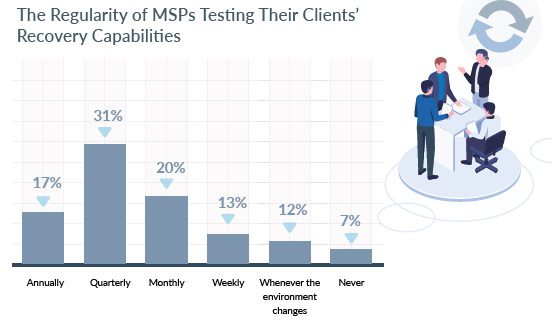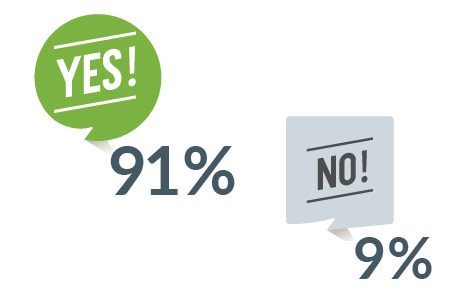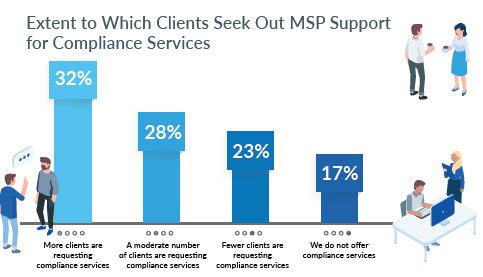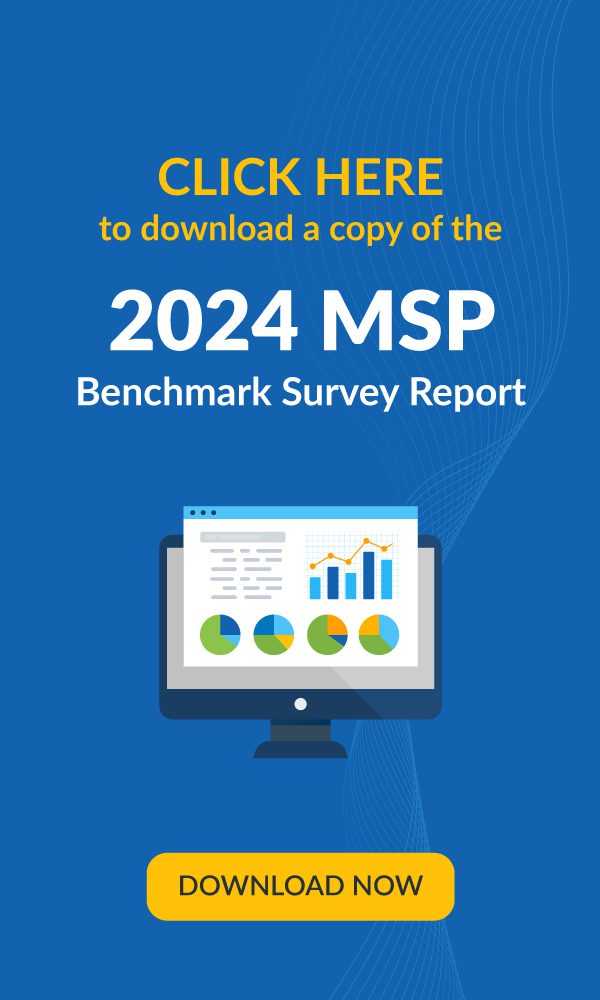MSPs have undergone a tremendous evolutionary shift over the past decade. Their customers are increasingly moving to multi-cloud environments and relying on automation to get their work done. However, this year’s 2020 MSP Benchmark Survey Results Report revealed that most of the needs of MSP customers seemed to go unheeded. As per the survey, MSPs earned an average of 30 percent of their revenue from providing traditional managed services, while other service revenues, such as professional services, backup and disaster recovery services or cloud services, lag among MSPs.
Whatever the reason may be—whether it’s due to the lack of in-house expertise or the general lack of understanding of the business model—MSPs will have to overcome their shortcomings and adapt as the market shifts toward cloud and automation, and accommodate enterprise needs to be successful in the competitive market.
Let’s take a look at five services that, when leveraged properly, can generate substantial revenue for MSPs.
1. Professional Services
In the 2020 MSP Benchmark Survey, Professional (project) Services represented an average of 13 percent of the revenue for the MSPs surveyed. Professional services included contract and billing, project management, customer relationship management and help desk.
MSPs can automate these services with the Professional Services Automation (PSA) software, offloading tasks from clients and generating a sustainable revenue stream. PSAs greatly help in centralizing MSP operations, saving time and protecting business margins.
2. Backup and Disaster Recovery Services
While backup and disaster recovery services represent an average of six percent of the total revenue for the MSPs, nearly 56 percent of them experienced a revenue increase in the past year through backup services.
This implies that the demand for backup services among MSP clients is definitely growing. These days, IT system failure or downtime can cost businesses millions. With limited IT staff and expertise, they rely on MSPs to support their backup and disaster recovery needs.
According to the survey, only about half (48 percent) of the MSPs surveyed test their clients’ recovery capabilities quarterly or annually. This is too infrequent to provide strong confidence in the recoverability of their data.

For MSPs looking to build a strong revenue stream, providing their customers with robust backup and disaster recovery services that include automated recovery testing for guaranteed backup is imperative.
3. Private/Public Cloud Services
Public and private cloud adoption and support are among the top IT needs this year. However, MSP management of cloud environments has dropped from 70 percent in 2019 to 56 percent for public cloud, and from 59 percent in 2019 to 49 percent this year for private cloud.
Cloud support had become a necessity for most businesses today, especially due to the pandemic, where companies have had to transform digitally to accommodate their remote workforce. Not catering to this need could cost MSPs dearly since they could lose customers to their competitors.
Cloud services represent an average of a mere four percent of the total revenue for MSPs. However, MSPs can capitalize on the cloud demand and boost their revenue by tapping into services such as:
- Helping customers migrate data from on-premise servers to the cloud
- Becoming a Cloud Solution Provider (CSP) reseller
- Managing and monitoring cloud workloads
- Automating clients’ cloud infrastructure
4. Enhanced Security Services
Security services, such as Two-Factor Authentication (2FA), Intrusion Detection Systems (IDS) and Intrusion Prevention Systems (IPS), represent an average of three percent of the total revenue for MSPs.
In today’s age, where security breaches have become an everyday occurrence, traditional security layers, such as antivirus/antimalware or firewall, are not enough to keep an IT environment secure. This can also be seen in the survey, where 91 percent of MSPs acknowledge the importance of 2FA for both their internal and customer systems.

Keep your client’s environment secure by providing:
- Breach identification services, such as IDS/IPS, that involves network monitoring for malicious activity or policy violations.
- Access management services, such as 2FA, that provides two layers of security to access systems and prevent cybercriminals from hacking by taking advantage of weak or stolen credentials.
- Penetration testing, where you can attempt to penetrate your client’s network as if you were a cyber attacker, and build strong defenses based on the results
5. Compliance Assessment Services
Compliance is critical for many industries. With the increasing number of regulations, including the California Consumer Privacy Act (CCPA) and the New York Stop Hacks and Improve Electronic Data (SHIELD) Security Act, data privacy has become a necessity for small and large organizations alike. Penalties for violations can be huge and non-compliance is practically a welcome mat for cybercrime, resulting in loss of reputation and financial disaster.
In the 2020 MSP Benchmark Survey, 66 percent of MSPs said that their clients struggle to meet compliance requirements while 60 percent said that their clients have sought their support for compliance services. MSPs can leverage this opportunity and turn compliance assessments into a revenue stream. For more information on how to conduct compliance assessments, click here.

The 2020 MSP Benchmark Survey Results Report enables MSPs to benchmark their performance against other MSPs around the world. Want to see how you stack up against your peers? Take the MSP benchmark assessment and analyze if you’re operating at maximum efficiency for maximum returns.





